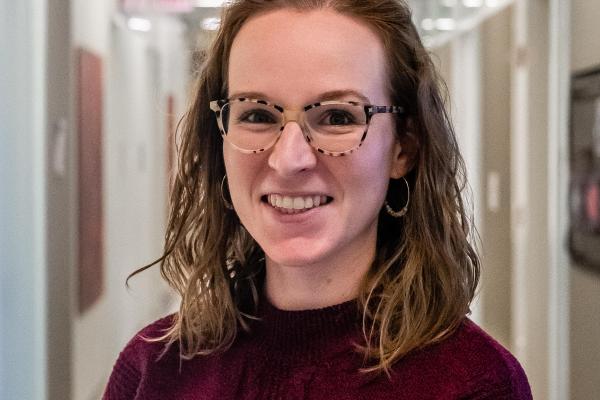
Dr. Kaeli Hughes
Penn State
The Next Generation of Neutrino Astrophysics
Location: 1080 Physics Research Building, Smith Seminar Room
Faculty Host: Amy Connolly

Abstract: Neutrinos provide a unique window into the highest energy accelerators in the Universe. Due to only interacting weakly, they are capable of traveling directly from their sources to detectors built on Earth. They are ideal candidates for unraveling the mysteries of the ultra high energy cosmic ray flux and understanding particle physics at energies beyond the capabilities of detectors on Earth.
In this talk, I will provide an overview of past, present, and future astrophysical neutrino detectors, with specific focus on the Radio Neutrino Observatory in Greenland (RNO-G), a new experimental effort that is currently being built in Summit Station, Greenland. I will discuss how updates to the trigger and station designs make RNO-G a discovery class instrument. And finally, I will talk about the multi-messenger possibilities that can be realized with this class of current and future neutrino observatories at the highest energies.
Bio: Dr. Kaeli Hughes builds neutrino detectors in some of the most remote places on Earth, including the South Pole, Summit Station Greenland, and White Mountain in California. Kaeli received her Ph.D. from the University of Chicago, working on the novel beamforming trigger design installed as part of the Askaryan Radio Array (ARA) that has motivated the design of new experiments currently being constructed. Her current work spans simulation, calibration, analysis, and detector development on multiple experiments, including the Radio Neutrino Observatory in Greenland (RNO-G) and the Payload for Ultrahigh Energy Observations (PUEO). Kaeli is currently a Presidential Postdoctoral Fellow at Penn State and a finalist for the 2023 APS Cecilia Payne-Gaposchkin Doctoral Dissertation Award in Astrophysics.
